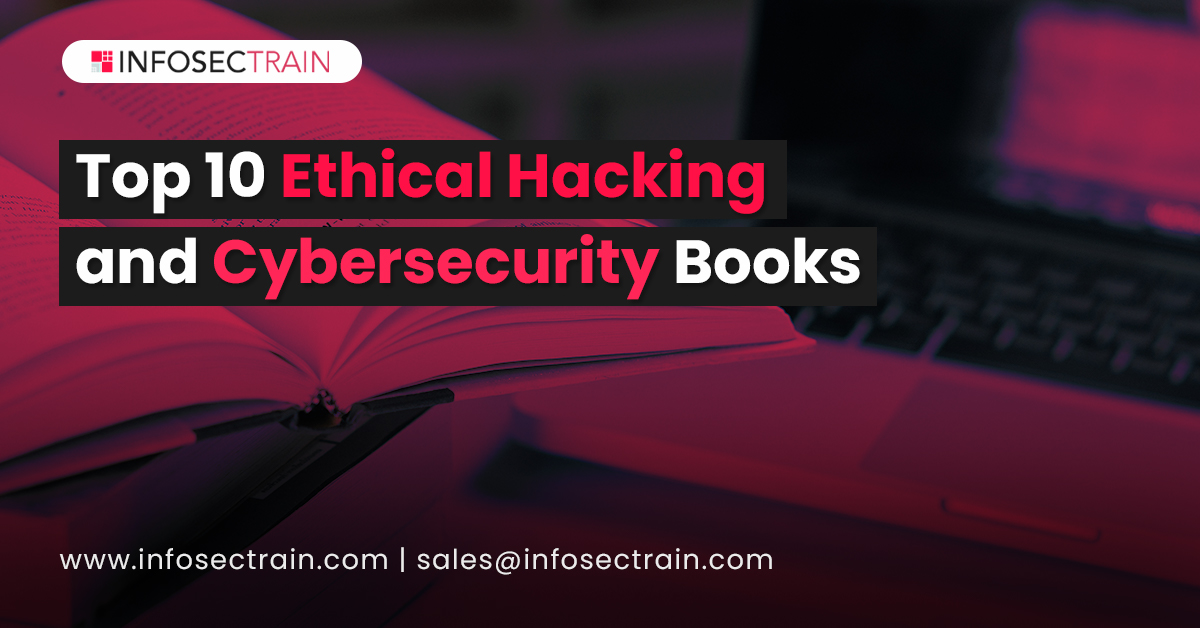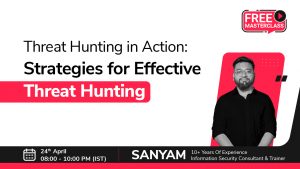Top 10 Ethical Hacking and Cybersecurity Books
Just in the last few years, hundreds of millions of credit card details have been leaked. This is achieved by exploiting weaknesses in hardware and software. Cybersecurity can be defined as technologies and methods to protect the confidentiality, integrity, and availability of computer systems and networks against unauthorized access. The purpose of cybersecurity is to protect all organizational infrastructure from both external and internal threats. Organizations are beginning to know that malware is publicly available, which makes it easy for anyone to become a cyber attacker, and companies provide security solutions to protect against attacks.

What is Ethical Hacking?
Hacking is a method of finding vulnerabilities in a system and gaining unauthorized access into the system to execute malicious activities. An ethical hacker aims to review the system for vulnerabilities that malicious hackers can exploit. They gather and analyze the data to check the security of the system and network. By doing so, they can improve the security posture, and this process is called Ethical Hacking.
Once you start learning Ethical Hacking, you will be more excited about understanding how things work, and the books are a great source of learning. So, here we have the top 10 Ethical Hacking books, by which you can understand the concept of Ethical Hacking and Cybersecurity in a better way.
Let us discuss the list of the best Ethical Hacking and Cybersecurity books.
1) “Penetration Testing: A Hands-on introduction to hacking” by Georgia Weidman
- This book on penetration testing is helpful for beginners. It can help you to enhance your ethical hacking skills.
- It covers the phases of pentesting, types of pentesting, different types of hacking attacks, required hacking tools, and software.
- It also speaks about the use of Kali Linux, Metasploit framework, basic programming, and web application testing.
- This practical book is completely updated to explain the latest step-by-step methods for attacking and protecting the range of web applications.
- It explains new remoting frameworks, HTML5, cross-domain integration techniques, UI redress, frame busting, HTTP parameter pollution, and hybrid file attacks.
- Each chapter has a practice question at the end.
3) “Applied Cryptography: Protocols, Algorithms, and Source Code in C” by Bruce Schneier
- This book provides an in-depth understanding of Cryptographic protocols, Basic protocols, Intermediate protocols, Advanced protocols, and Esoteric protocols.
- It explains how cybersecurity professionals can use cryptography to encrypt and decrypt messages.
- It consists of several cryptography algorithms and techniques that are used to solve cybersecurity problems, such as data encryption standard, block cipher, Pseudorandom sequence generator, and stream cipher.
4) “Social Engineering: The Science of Human Hacking” by Christopher Hadnagy
- This book includes the world’s first social engineering framework and offers a unique approach to social engineering.
- It analyzes and dissects the very foundation of what makes a good social engineer and gives practical advice on how to use these skills to enhance the readers’ abilities to test the biggest weakness—the human infrastructure.
5) “Black Hat Python: Python Programming for Hackers and Pentesters ” by Justin Seitz
- This book explains how to set up an environment to write and test Python, set up a Kali Linux virtual machine (VM), and install a nice IDE to have everything you need to develop code.
- This book will give you some basics on Python networking using the socket module and TCP proxy.
- It also covers an in-depth understanding of Raw Sockets and Sniffing, Network with Scapy, Web Hackery, Burp Proxy, and Github Command and Control.
6) “Hacking: The Art Of Exploitation” 2nd Edition by Jon Erickson
- This book has two editions; the first was published in 2003 and the other in 2008.
- The second edition of this book is from a hacker’s perspective and introduces you to C programming. In this, you will learn to program using C and shell scripts.
- This book will also learn to hijack TCP connections, crack encrypted wireless traffic, and speed up brute-force attacks.
- This book is an in-depth guide for anyone looking for expertise in penetration testing.
- It covers the detailed usage of Metasploit software for using standard exploits, creating custom exploits, and avoiding detection.
- Readers also get to learn about social engineering techniques and penetration testing tools for Microsoft Windows.
8) “The Hacker Playbook 3: Practical Guide To Penetration Testing” by Peter Kim
- This book includes updated topics from the past couple of years that are Abusing Active Directory, Abusing Kerberos, Advanced Web Attacks, Better Ways to Move Laterally, Cloud Vulnerabilities, Newer Web Language Vulnerabilities, Physical Attacks, Privilege Escalation, PowerShell Attacks, Ransomware Attacks, and Penetration Testing.
- In this book, you will learn application whitelisting, integrity monitoring, and lots of IDS/IPS/HIPS rules.
- This book on practical malware analysis explains the tools and techniques used by cybersecurity analysts.
- This book will guide you to examine and debug malicious systems.
- Here, you will also learn how to set up a safe virtual environment to analyze and crack open malware and damage.
10) “Nmap 6 Cookbook: The Fat-Free Guide to Network Security Scanning” by Nicholas Marsh
- This book provides simplified coverage of network scanning features available in the Nmap suite. Every Nmap feature is covered with an example to help you quickly understand the practical results.
- It also covers many topics that will help you understand the concept of network security: Essential and advanced scanning techniques, Firewall evasion techniques, Network inventory and auditing, Zenmap, NSE (Nmap Scripting Engine), Ncat, and Nping.
How Can Infosec Train Help you?
InfosecTrain provides instructor-led training for Ethical Hacking and Cybersecurity certifications exams that will help you acquire the skills to recognize the vulnerabilities in an organization’s security posture. You can visit the following link to prepare for the certification exams:




 1800-843-7890 (India)
1800-843-7890 (India) 
